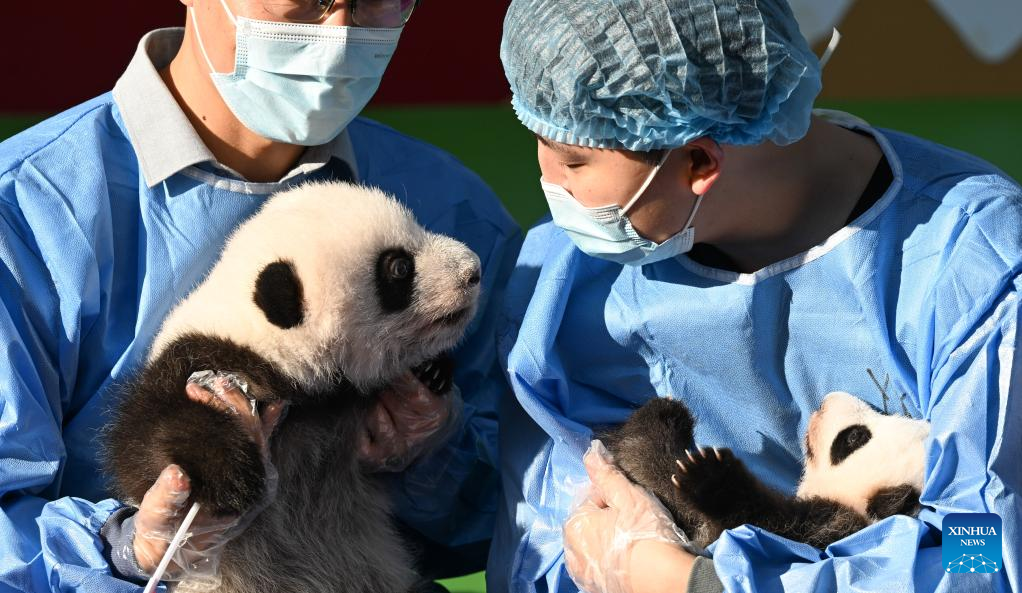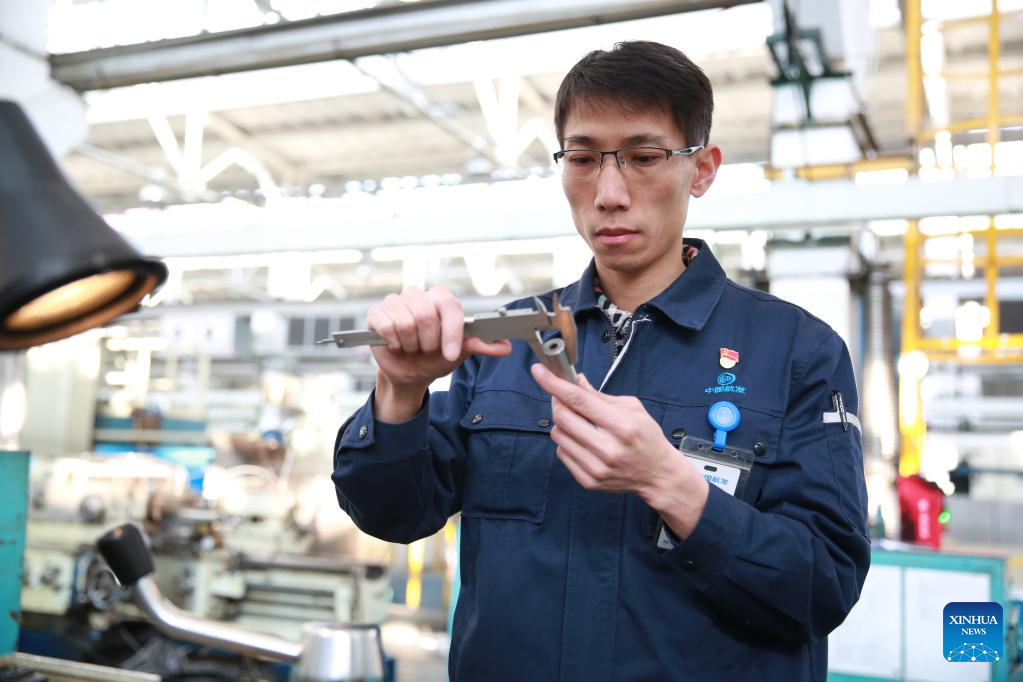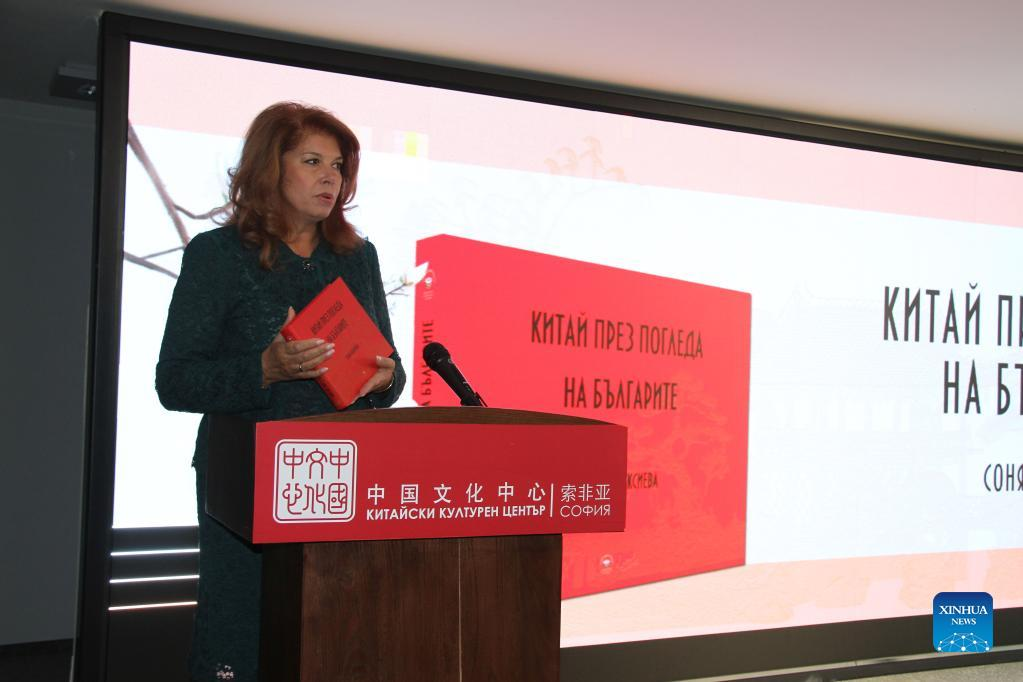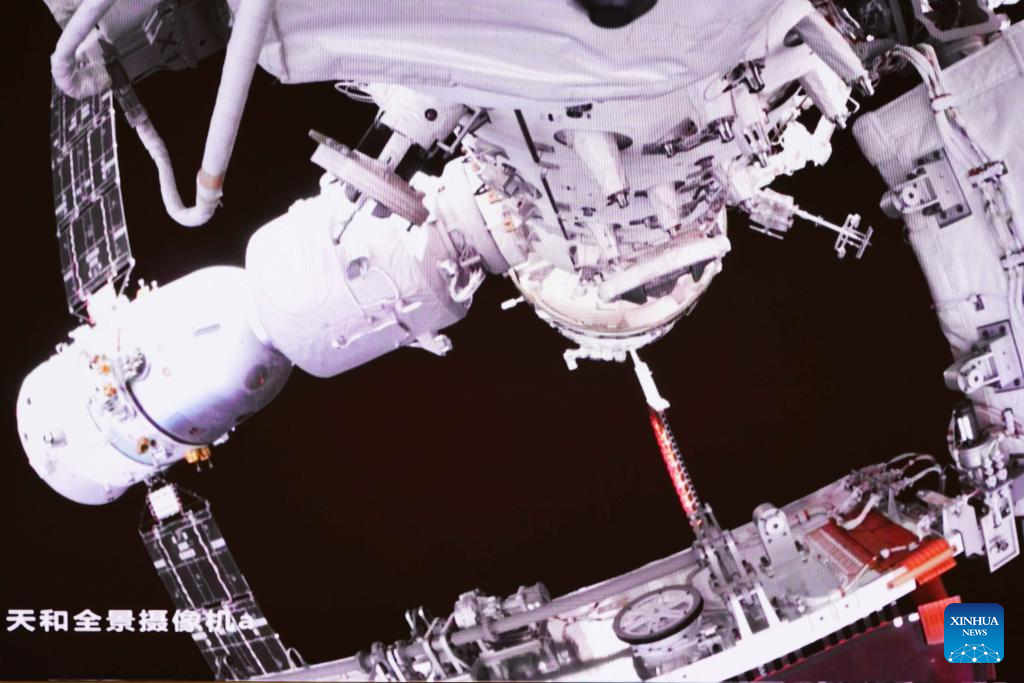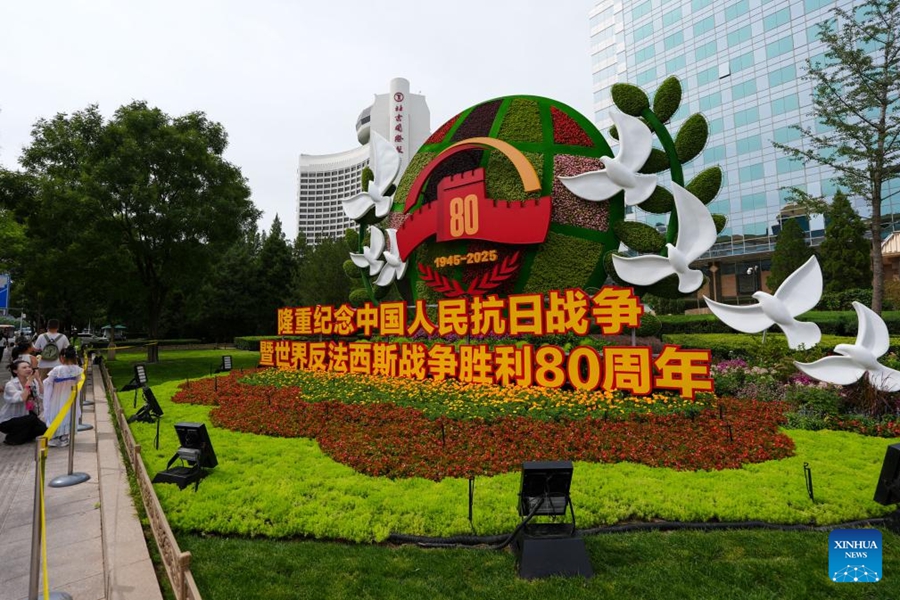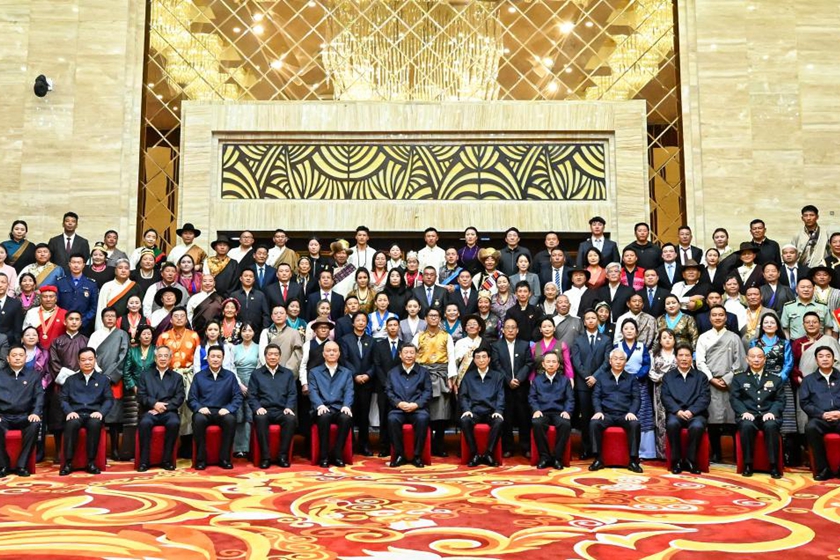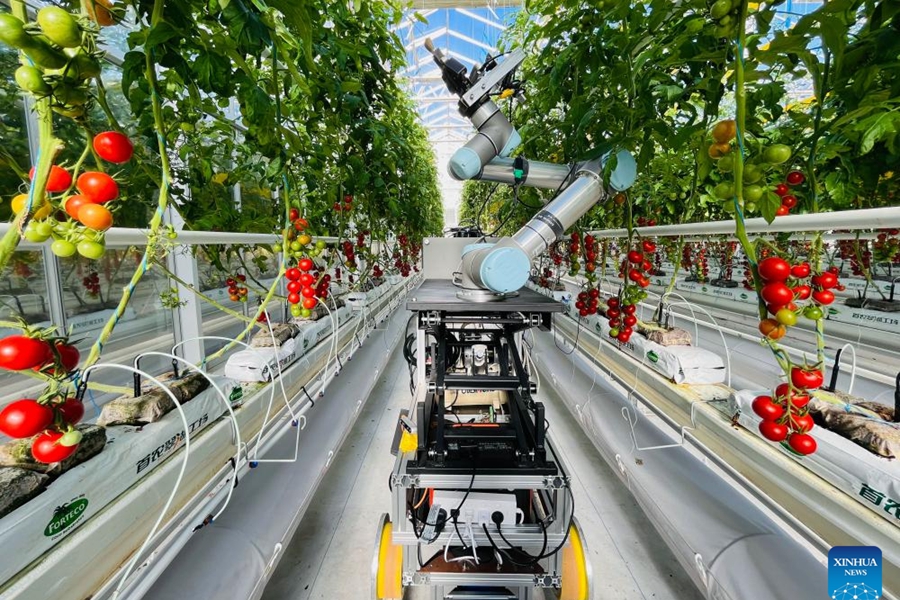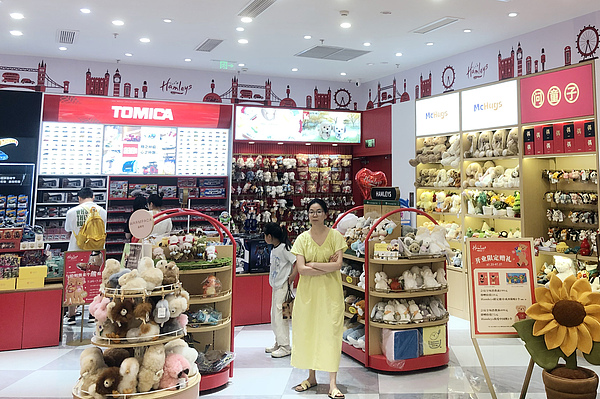
(CFP Photo)
Jiangsu's average concentration of PM2.5 in 2022 managed to decline for the ninth consecutive year since 2013.
After 20 years of persistent efforts, the province's industrial enterprises have significantly reduced the total amount of pollutant emissions and many cities also saw their best air quality since the monitoring started. This achievement also means that the province needs to make greater efforts to reduce the concentration of PM2.5 even by 1 microgram per cubic meter.
In August 2022, Jiangsu issued an action plan for ports and vessels to reduce air pollution, requiring dry bulk terminals at a certain scale to cover the silo before the end of the year. Such measures will help improve environment at the province's key waterways.
As the only coal-fired power plant in the west of downtown Xuzhou, Huamei has increased its capacity without increasing flue gas emission thanks to the technological upgrade. The use of a central heating system has replaced the work of 38 small coal-fired boilers, marking a great stride to reduce secondary pollution.
After Shengcheng Machinery Co Ltd applied for environmental assessment for its project to manufacture compressor and accessory parts, the Department of Ecology and Environment of Hailing District in Taizhou City, where the project is based, designated a task force to offer guidance in plant design, pollution prevention and control, hazardous waste management and other aspects.
Efforts were also made to help small and medium-sized enterprises struggling in COVID-19 outbreaks to meet the emissions requirements at lower cost and move towards green transformation.
For example, Gaoqiao Town in Zhenjiang City was home to 118 private shoes and fur enterprises and 435 individual industrial and commercial households specialized in shoe-making. It took about 1,500-2,000 yuan for such small businesses to transport and dispose of one tonne of leather waste, a high cost for them. Then under the guide of Zhenjiang's Department of Ecology and Environment, Gaoqiao built a facility called Green Island to adopt standard ways to collect, transport and process the waste, which was warmly welcomed by local businesses.
The Green Island initiative is an important move in Jiangsu to enhance environment protection. Inspired by the sharing economy, a model that allows consumers to share in the use of goods and services, Jiangsu's environmental authorities have pooled resources to build such projects, which have helped nearly 30,000 SMEs to contribute to environment improvement at lower cost.
Environmental protection projects generally need large investment. Jiangsu has taken the national lead in providing credit enhancement for green and low-carbon projects, effectively meeting the financing needs of enterprises. Jiangsu's Department of Ecology and Environment has also joined hands with other departments to introduce 33 measures to support green financing.


